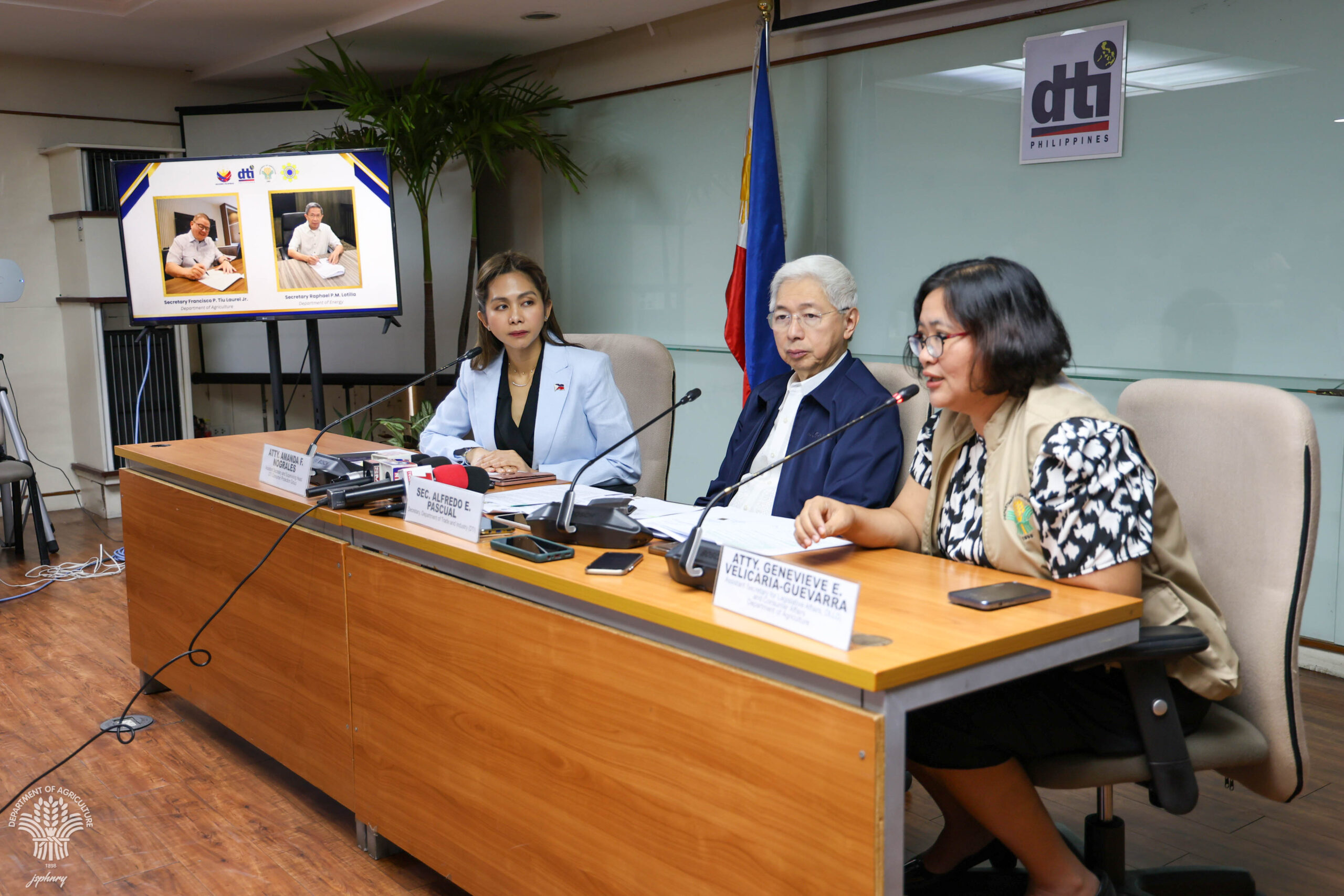
The Department of Agriculture (DA), Department of Trade and Industry (DTI), and Department of Energy (DOE) signed a joint administrative order (JAO) implementing a special discount of five percent of the regular retail price of basic necessities and prime commodities (BNPC) without exemption from the value-added tax (VAT) for Filipino senior citizens and persons with disabilities (PWDs).
According to the JAO, signed on March 21, 2024, the total amount of the discount shall not exceed P125 per week for an equivalent total maximum purchase of P2,500 per week. This should be spent on at least four different kinds of locally manufactured and locally produced BNPCs as identified by the JAO.
Recognized as basic necessities by the JAO are: all kinds and variants of rice (except imported specialty rice); all kinds and variants of corn; all kinds of locally produced bread (cakes and pastries not included); all locally produced fresh, dried, and canned fish and other marine products (including those live, chilled, frozen, and in various modes of packaging); all locally produced fresh pork, beef, and poultry meat (except premium grade); all fresh chicken and duck eggs; locally manufactured potable water in bottles and containers regardless of size; fresh and processed milk (excluding foods for special medical purposes); locally produced fresh vegetables including root crops; all kinds of fresh fruits; locally manufactured instant noodles; locally produced coffee (only whole beans, ground beans, instant up to three main ingredients); all kinds of sugar (except artificial sweeteners); cooking oil (only coconut oil, palm oil, soybean oil, canola oil, and vegetable oil); iodized salt; locally manufactured laundry and detergent soap; locally produced firewood; locally manufactured charcoal; all kinds of candles (except decorative and scented); household liquefied petroleum gas (LPG) with a net content of not more than 11 kilograms (only once every five months) bought from LPG dealers; and kerosene not exceeding two liters per month. ### (photos by Joseph Henry Elamparo, DA-AFID)










